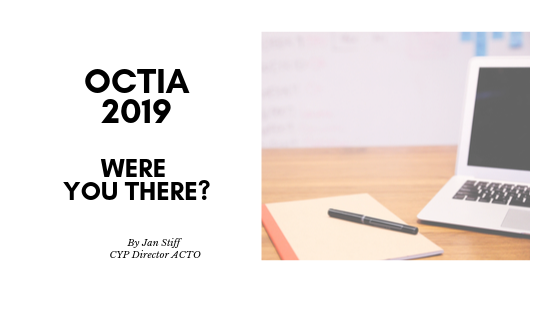Please look here for the latest guidance


Please look here for the latest guidance
Our new patron Anne Stokes was one of the first to provide online counselling training in the UK. We asked her to share with us how she became an online counsellor.

Just over 20 years ago, a good friend of mine, who I had trained with as a counsellor in the mid-80s, talked to several of us about a project she was currently involved with. A group of counsellors had got together and were looking at the possibilities of using the internet to work with clients. They wanted to set up a pilot scheme in which they would each work with a client and then talk together about what had happened – what worked and what didn’t.
They were therefore in need of ‘clients’. I volunteered to be a client, obviously not for my friend, but for one of the other members of the group who I didn’t know. In those days, the idea was to counsel through the medium of email exchanges. I think that because no one was quite sure how that would go, they were looking to use counsellors as clients because most of us would have supervisors and probably our own therapists to support us if things went badly wrong.
My counsellor sent me a contract and we began to work together, exchanging emails roughly once a week. I used a real issue as I have never been a big fan of role-plays as I think that it is nigh on impossible to truly pretend to have a problem which is made up, without a bit of one’s self creeping in unbidden and probably out of awareness. This has the potential to turn the whole thing into a disaster!
We exchanged a number of emails – I can’t actually remember how many now – and included various creative ways of working. I seem to recall the use of images, metaphors, drawings and a poem.
After we had ended, I gave my counsellor feedback on how I had found the experience. Though I was not involved with this part, I know that the group then looked at their combined learning and from there, what would be necessary to train counsellors to work online.
No, I most certainly did not! In those days I was a total luddite and thought the whole idea was completely bonkers. How on earth could a relationship be formed online, without ever meeting the other person? If that was so, then therapy couldn’t possibly be successful since the relationship is fundamental to the process. Basically, I volunteered to prove that this thing would not work.
When my colleagues (and some of my counselling students) at the University of Bristol knew that I was going to be part of this pilot, they fell about laughing as I was well known for having as little to do with technology as possible.
How I had to eat my words L . Not only did I form a sound and trusting relationship with my counsellor, but I discovered that she was well able to convey the core conditions throughout our email exchanges. I chose to concentrate on an issue which had been around for years and which I had looked at on and off within my face-to-face therapy without anything much changing.
Perhaps it was ‘good timing’ in my life, perhaps it was to do with the skill of my counsellor, perhaps it was because my expectations were so low, whatever…… it unblocked the issue and it was possible to make changes in my life and in a particular relationship, as well as gaining insight into to the underlying blocks. I could no longer say rather sniffily that e-counselling wouldn’t ever work and that it was a ridiculous notion.
The immediate consequence was that I decided that I would have to train as an online counsellor as the pilot group had then set up a training scheme. You can see what a leap I made – total sceptic to total convert in a few months. What a revolution and what an effect it had on my subsequent years as a therapist, trainer, supervisor and writer.
Along the way, I have been able to enjoy interactions and relationships with colleagues who I have met online. With a few people, these have turned into friendships sustained both online and face to face.
One bizarre occurrence was meeting someone face-to-face after a couple of years training together and then developing our close friendship online. We almost didn’t know how to conduct ourselves in person so to speak, until she asked why we were so stilted with each other when we could talk so easily online. As so often happens, this naming of what was happening broke the issue and we laughed at ourselves. We still know each other 18 years later.

I wanted to share some reflections on working with interpreters in online psychological work. This is in relation to a piece of work I did for an International NGO after three staff (all Afghani) were kidnapped and held for 24 hours by an unknown group in a remote region of Afghanistan. The three staff members had been affected differently by this experience and their employer wanted some support for them and turned to InterHealth Worldwide, a social enterprise providing medical and psychological support to the aid and mission sector, where I was then working.
Something about me: I am a counselling psychologist with around 2 decades of experience in the UK National Health Service (NHS) working in the main a specialist project for refugees and asylum seekers in London. I have a long experience of working with interpreters in face to face therapy and when it was clear that two of the three men concerned spoke limited English, the stage was set for us to think about what we could provide with interpreter.
I was lucky enough to have worked closely with Newham Language Shop (a London based interpreting service) and to know a particular Dari speaking interpreter, Idrees Rasikh very well. To do this rather innovative piece of work, it was reassuring to be working with a colleague I knew and trusted, who knew my style of working and who I knew would be open to reflecting about the work as we went along.
There was no published literature to draw on for this work but I had some notes prepared by Beverley Costa of the organisations Mothertongue and Pasalo (www.pasaloproject.org) about interpreter-mediated therapy via Skypei. The situation she was discussing was different however, as the therapist and client were envisaged as being in the same room, with the interpreter joining them by web-cam to cut costs and make interpreters more widely available. Costa noted the need for clients to experience talking via a screen to test out technology and make sure clients felt at ease. She also spoke of the need client and therapist to be positioned more closely than normal so that they are both visible – something that might prove uncomfortable to both. Further she stressed the need for back up plans when things go wrong with technology and of setting some ground rules about how to manage turn taking. As she says, “the clinician needs to remember to look at the client, for the benefit of the therapeutic alliance, although it will be very tempting to look at the screen”.

In the work that I am describing, things were different. The interpreter and I were in the UK on one side of the web-cam screen, while our clients were on the other side in Afghanistan. This meant that myself and the interpreter sat close together, side by side (with perhaps reduced opportunity to observe each other) and both
looked at the client on screen. However some of the observations made by Costa were definitely of relevance: the need for a back up plan, the need to create a setting in which all parties could see and be seen and the difficulty that could arise around turn taking were just as relevant.
I am convinced that having me and the interpreter in one location was crucially important, to build a therapeutic team and contain the two clients we worked with. The interpreter and I had worked together in therapy already, meaning that we were better able to read each other’s communication and used to the setting. Had I used an interpreter in Afghanistan, a stranger, communication would have certainly been more difficult. There could also be difficulties if the interpreter became involved with the staff outside the therapy work in ways I as the therapist could not monitor or control. Added to this would be questions of quality control as interpreters based outside the UK may have different training standards, different contractual requirements around confidentiality and be operating under different codes of practice. In a country like Afghanistan, it is also important to be mindful that pressure could be brought to bare on an interpreter for political or economic reasons without the therapist being able to protect and support their colleague in any way.
In a further option, the therapist, client and interpreter could all be in different places and meet only in the online space, or perhaps employ three windows on a platform like Zoom, so each joined independently. However, it is my opinion that this would lessen some of the relational gains of the client seeing the psychological therapist and interpreter as a therapeutic team. I have written about this at more length elsewhere (Tribe and Thompson 2009 a & b). Our time before sessions started (prior to launching the web-cam meeting) allowed us to review and plan together, and the time following the session also allowed for reflection on the work and on communication glitches.
A second observation was that things worked very much better when there was a “fixer” on the client side, someone more adept at setting up meetings, ensuring connections and trouble shooting when things went wrong. In our work in Afghanistan, a particular staff member who was more confident with technology acted as a liaison and stood by to help when technology let us down. As the time difference was 3.5 hours (and later 4.5 hours) and the working days were very different between us in the UK and the clients in Afghanistan, our fixer was also really helpful in making sure appointments were kept and times were finalized, particularly given that our times on the UK side were quite fixed by the availability of interpreter and my availability.

As might be expected, connectivity was very variable and I noted that our fixer in Afghanistan was checking connectivity in different locations in the office building meaning that we “met” in a number of different locations and occasionally had to move mid-session. All this meant for quite a bit of disruption, but we were able to manage this with some humour and a sense that nonetheless the work was
“good enough” and we were able to create safety. We also met for 90 minute sessions to take account of time lost for with connection problems and other disruptions and maximise our use of our interpreter.
So, I have discovered that it is possible to have therapy using web-cam with an interpreter, despite the challenges. I found I was able to support staff members who had lived through a critical incident and although the interpreted sessions were more challenging than those with the staff member who spoke English well, we were still able to work on symptoms like nightmares, intrusive images, fearfulness, problematic self-beliefs, anger and difficult trauma narratives with some effectiveness. As Harries (2018) states, “language is the primary currency of therapeutic work” and in work of this kind, in which two languages are interacting directing to create space for therapy, consideration of the “particular language relationship” being created between therapist, client and interpreter can shed important light on the work being done.
Harries, L (2018), Online Supervision and managing risk in an international context. In: Stokes, A. (Ed) Online Supervision a Handbook for Practitioners. Psychotherapy 2.0 Series. Routledge: Oxon.
Tribe, R and Thompson, K. (2009) a. Opportunity for Development or Necessary Nuisance? The Case for Viewing Working with Interpreters as a Bonus in Therapeutic Work. International Journal of Migration, Health and Social Care 5 (2), 4-12.
Tribe R & Thompson K (2009) b. Exploring the three-way relationship in therapeutic work with interpreters. International Journal of Migrant Health and Social Care 5 (2) 13–21.
For more information about the way in which Pasalo project works with interpreters using online platforms please visit the website and view a short video.

Unfortunately, I could not make the time to travel to Manchester but, as delegates can attend OCTIA online, I chose to do just that …. And felt that I got my online fee’s worth.
On the OCTIA website the day promised …
“The 2019 conference theme is focused towards those online counsellors, therapists and health care professionals who are engaging with their clients and service users using the full range of online platforms and media. There’ll be the opportunity to share how we care for our clients, but how we care for ourselves and each other as fellow professionals. We are stronger together!” https://www.octia.co.uk/
Working as a therapist or supervisor in the online world can sometimes feel isolating, bewildering and frustrating. These are negatives amongst the many benefits. The passion emanating from today’s speakers was strong. Where organisations are often struggling to maintain a steady flow of funding, it was clear from today that everyone present had a deeply held belief in the difference that online therapy can make to clients of all ages. I felt that we are finally entering a time where online therapy does not need to feel “second best” to face to face therapy. Instead it is well recognised that some very vulnerable clients would not access counselling face to face.
There was an interesting discussion around qualifications for working online. The age-old questions of “are they necessary?” As always, my thoughts turned to “we can never know what we do not know”. I might be biased as I have tutored in online counselling and supervision over the years, but I still remember just how much I did not know when I trained. Those moments of “OMG … !” Todays speakers clearly agreed with the need for appropriate training and good support.
A discussion around providing online therapy from volunteer counsellors was summarised well by Catherine Betley who believes strongly that no counsellor should be asked to work voluntarily. The attributes that they bring need to be respected. I agree and wonder whether the world of online therapy has many therapists passionate about the benefits of online therapy and would even work voluntarily to make it accessible. I know that this is why I worked voluntarily for an online organisation in the past.
My sense is that conferences like OCTIA will help ensure that ethical and safe online practice for the sake of clients will always be the standard at a time when online therapy can still be heard of as “the stepping-stone into face to face therapy”. Putting clients first, we need to stamp this out as being inaccurate and disrespectful of online therapy at a time when online therapists can often be faced with having to make a decision to hold the emotional needs of a very complex client . The passion of many online therapists comes from their desire to meet the needs of clients where they can be best met – whether that is sitting in their bed struck with grief or too full of shame and guilt to sit with a therapist, directly, face to face. I can’t remember who said this today, but it is “horses for courses”. The choice of face to face or online therapy can only continue to benefit clients.
Thank you to the OCTIA team – see you next year.
Jan Stiff
CYP Director ACTO

In early November, The Guardian posted an article about Tim Berners-Lee idea for a new “contract for the web”. Tim Berners-Lee is the founder of the web and he is very concerned with the privacy of online users on the internet.
Tim Berners-Lee has launched a global campaign to protect the online users for abuse and discrimination among other important issues with the use of the internet.
He wants governments, companies and individuals to support a “Contract for the Web” with the main goal to protect people’s rights and freedom on the internet. He calls it a “Magna Carta for the web”. The aim is for all to have access to the internet, in a freely, safely, secured and without fear of abuse.
“Magna Carta for the web”

ACTO welcome this campaign and is very pleased with already so many companies supporting a contract for the web. More than 50 organisations have signed the contract so far and the number is hopefully growing every day.
The online world is a wonderful and exciting world where opportunities are endless. Unfortunately, the internet also brings fake news, online bullying, websites being hacked and personal information might end up being shared online, which was never intended to be shared for the wide public.
At ACTO we work very hard to keep online therapy safe and secure but accessible for all. We keep up with current research in the area, we keep developing as online software becomes available and the technology furthers.
We only promote and work with online platforms that can show evidence of a secured and confidential service to clients, therapists and counsellor.
ACTO is using its strong relationships with other professional therapy. and related, bodies to ensure that these high standards are maintained across all modalities and online work.
ACTO’s online training requirements
ACTO is also working with the growing number of online training providers to create high standards of training that will give therapists confidence in the course they choose, that it will equip them to embark on online therapy.
ACTO believes strongly that to practice as effectively and ethically as possible specific training in online therapy is vital. In the same way that any professional would seek training if broadening out their career and skills in a new area. All therapists have a foundation training that is robust, with ethics a core aspect running through it. As we develop our careers our professional bodies expect us to continuously train and keep open to new approaches and learning. And if we were to begin work in a new way would look for an appropriate course to support this.

For example, core therapy training is to equip the therapist to work with adults, and so we know that to branch out to work with children and young people, we would seek a course that helped us to develop the skills to work ethically in this specialism. In the same way, we would expect a doctor wanting to practice in a related, but a different part of medicine to undertake appropriate training.
ACTO believes that maintaining high standards of online training and practice supports both online therapists and the public. The legal and technological world is ever-changing and can be complicated to understand, potentially leading the untrained online therapist into difficulties. So ACTO has recently led in a pilot with CORE-net, gathering evidence for the use of CORE in online therapy, with a fascinating and very positive result, which will be used to take this pilot forward to the benefit of all ACTO members.
This gives a flavour of the range of work that ACTO is undertaking on behalf of online therapists, and those wishing to train. ACTO’s ethos is to be professional, ethical and inclusive, and the Board is always keen for ACTO members to join either the Board or the range of working groups that are doing so much of the valuable work of ACTO. For example, there are working groups for research and development, children and young people, the CORE project, and the development of the website.
ACTO is happy to engage in open and robust discussion and offer guidance and support to anyone interested in online working. ACTO’s members have a wealth of experience, skills and backgrounds that they are keen to share.
Sources:

Self-care when working online
In this age of digital technology, smart phones and improving Wi-Fi signals across the world, it is increasing possible to work across time zones and almost anywhere. This brings a flexibility and potential to reach out to a wider range of clients, and fits with jobs that often encompass a variety of roles. For private counsellors their work portfolio will often include supervision and training alongside their client work; working part time or sessional for public, private and voluntary sector organisations, and perhaps running your own website and social media content.
This mix of work roles and media with which to work in can be exciting and stimulating. At the same time we are working in an age of innovation and rapid change. Only now are children being taught the importance of boundaries, netiquette and considering how much screen time they have, and when to switch off.
Many of us (myself included) have got swept up in the excitement and possibilities of digital technology. And are often only stopping to consider how to achieve a balance and how to, literally, switch off our devices, once we become stressed and overloaded.

When our smart phone is our watch, our alarm, calendar and access to email, it can feel impossible to turn it off or set it down. How many of us cringe inwardly as we discuss self-care with our clients, knowing how poorly we look after ourselves? How often have you explored ways for a client to reduce dependency on their phone or device whilst going to bed checking emails, catching up on news or checking social media?
We know there are many apps and websites devoted to helping us relax, be more mindful, limit our time on social media; yet how often do we pause to reflect on how we are taking care of ourselves?
‘Context’ is a word I use a lot with clients and supervisees, when looking at the theme of self-care. How much time do I realistically have to focus on self-care in relation to my other work and life demands? What types of self-care fit me at this point in my life? What variety of self-care do I have, so that there is always something available?
I encourage you to take a few moments to think about your self-care; write a list of the different ways that you relax. I appreciate that with busy lives this can feel like a pressure in itself. As a mother of a young child I have come to realise how the time available for self-care is often severely limited. Hence my great belief in the quality of self-care (what it means to me) over quantity of time spent. I am an avid reader, and in my pre mother days would happily spent an hour or more reading. Now I give myself fifteen minutes as my little one falls asleep. This few minutes is a part of my evening that I relish. I have learnt, through becoming stressed, to take a full break at lunchtime, and to go outside for a walk, whatever the weather (!), and have found I am more productive in the afternoon. From years of rarely taking a lunchbreak, I now fiercely protect it, and become quite annoyed if it is eaten into!

Think about what you used to do to relax – maybe some of these things you would like to reconnect with? Perhaps there are things you want to try? I have been given several colouring books, but have never quite got into this. Whereas a year ago I took up knitting (having learnt as a young child) and enjoy this as I get a sense of achievement from creating something tangible, that I didn’t get from colouring. I keep the pressure off, so may go several days without knitting if I feel too tired, enjoying it more when I choose to pick it up again. My daughter is the happy recipient of my efforts – along as I use purple wool!
So experiment, find a range of activities. Things to do alone, with others, at home, outside, quiet, active, free, for different seasons, for different energy levels. Things that make you feel virtuous, things that are ‘guilty pleasures’. And most of all, remember quality over quantity – a few minutes is all it takes to give yourself a message ‘I am worth taking care of’.
written by Rachael Klug
therapyspace.online ; tutor for the Academy for Online Counselling and Psychotherapy acadtherapy ; Board member Association for Counsellors and Therapists Online https://acto-org.uk ; mBACP
Rachael Klug explores the few highs, but mainly the lows of Hang Ups from the viewpoint of a professional and trained online therapist:
The portrayal of therapy on the screen is problematic, as every attempt I have seen demonstrates. You have the sinister, invasive ‘Gypsy’, with the vampish therapist preying on client’s intimate relations. Then there’s the intriguing ‘In Treatment’. ‘In Treatment’ is a case in point, for here you have the closest depiction of a therapeutic relationship between clients and therapist, certainly that I have seen on the screen; Gabriel Byrne’s therapist really cares for his clients, but too much. He loses his boundaries with his clients, developing erotic relations with one, so in the end he loses faith in therapy itself.
So, it was with interest that I heard there was going to be a comedy series based on online therapy with a comedian that I much admire, Steve Mangan, playing the key role. In the pre-viewing interviews, I read that Steve Mangan had been advised by a humanist psychotherapist, so I was even more interested to see how this might develop as it looked on paper that he had really done his homework.
‘Hang Ups’ is a mixed bag of a comedy. There are mostly disappointing bits with lazy depictions of clients, as well as therapy itself, for cheap laughs, but there are some gems hidden amongst the tired old stereotypes. I am in danger of sounding very moralistic here, but as someone who works with people who are courageous enough to reveal their innermost vulnerabilities, I find it shoddy to stereotype clients in difficulties to try to get some supposedly comedic affect. Steve Mangan has clearly not studied clients exploring their vulnerabilities for his depiction lacks sensitivity. An example is the villain of the piece, the very sinister-looking, violently-threatening, debt collector, Neil, who Steve Mangan’s therapist gives therapy to in lieu of debt repayment, or so he hopes. Even if we put the major ethical infringements aside in the therapist even offering therapy to his debt collector, the depiction of the issues Neil is tackling is just crass. Neil reveals, casually, that he had sex with his mother at 15, and then with his cousins; ‘well, it sounds like you were all kept very busy’, retorts the therapist. Sorry, Steve, but jokes like this about abuse survivors went out years ago, especially in the wake of the #metoo campaign and revelations about childhood abuse. I would have hoped that comedy had moved on, mainly because IT’S NOT VERY FUNNY.
It’s a shame, because if Steve Mangan had really done his research and seen how the therapeutic relationship works, he could have cleverly woven pathos with its greater understanding from the clients’ perspective, with laughter which takes sensitive skills, and makes for some of the most genius comedy scripts.
And it’s not just the characterisation of the clients and their issues that’s shoddy, the actual therapy itself is utterly hapless. Yes, there are some funny bits, such as racing around the house trying to find the charger cable, that most of us who work from home will recognise. But, overall, his depiction of online therapy is as far from the mark as you can get; so far, that it’s just bizarre and so falls flat as a comedy. The third episode, with the son listening outside the therapist’s open door, as he sets up the daughter’s teacher to call in for therapy to reveal his relationship with Steve Mangan’s daughter, crosses so many ethical red lines it’s just cringeworthy. Steve Mangan’s therapist seems to have very little concept of boundaries, something in common with other depictions of therapy on the screen, and when his helper friend showed surprise that Steve Mangan’s therapist had any therapeutic training in the first episode, his friend was spot on – for this therapist clearly has no understanding of therapy, certainly not in online work! But even further, the so-called therapy shown in the series, is so far removed from any therapeutic experience I could recognise, it’s just so far from the mark, it has no relation to therapy and so is just daft. I am left wondering where was Steve Mangan’s research on therapy; how has he developed a show that has such little relation to what actual therapy is? My concern with all this is that it would give anyone who hasn’t experienced online therapy such a misleading view of what it’s like, that it may well put off some of those who may have sought it for support.
BUT, there are parts that really do work, hence it’s a mixed bag, and I want to focus on the gems in it for they raise really important aspects of working as an online therapist.
‘Why are you looking at me directly in the eye?’ Richard E. Grant’s psychotherapist is a classic and his opening scene in the first episode is done brilliantly. Here, we have a traditional face-to-face psychotherapist wrestling with the new technology to brilliant effect. In the small scene, Richard E Grant’s therapist captures the difficulty of working online in his dilemma about where his client should be looking. How can he replicate the couch so his client, Steve Mangan, can reach into his subconscious? By getting poor Steve Mangan to stare ‘obliquely’ at the curtain. In my training for online work, considering where we are looking and whether we can maintain eye contact when online was an important part of early discussions about working with a webcam. Some of my clients like to work with the webcam, others prefer live chat or audio only. The essential difference with online work to face-to-face is that the client has the choice; they are immediately empowered by collaborating with their online therapist in setting up an online space that works for them, be it audio or webcam.
Richard Grant’s therapist also misses a major point about online work – the screen! Who needs a couch to be able to explore one’s subconscious self when we have a screen that enables that closeness of thought between therapist and client, or as John Suler (*see reference below) put it, the ‘mind merging’ potentials of online work. Conversely, some critics of online therapy in the psychotherapeutic world criticise online work precisely because of the lack of physical presence. Perhaps there is a misunderstanding of the nature of presence in the relationship between therapist and client, or that they have not yet experienced the powerful connections that can develop in the online world. Looking into the eyes does not have to underpin a close therapeutic relationship, as the couch demonstrates.
‘I can talk about the showers’ Which leads me to another important aspect, disinhibition in online work. So the client with the ‘fucking cats’, suggested immediately that they talk about sex. ‘So can we sort of hurry this bit now, can we sort of zap through whatever it is you need to know. I can have a cry, we can all go home.. can we sort of speed that up?’ Anyone that has worked online has to manage two major facets of online work; disinhibition and the speed that can happen. Again, referring to John Suler* who was the first to recognise the disinhibition effect of working online, the screen can diminish defences and resistances with many clients feeling freer to explore and disclose their intimate selves. Be it because of the anonymity afforded by working online, or the feeling of invisibility, many clients feel able to open up their deepest vulnerabilities very early on in the therapeutic encounter. This means that the therapist must have training to know how to manage this sensitively and with understanding. And, no, Steve Mangan’s expressive eye brows whenever a client discloses a most delicately-held revelation, is not ethical and good therapeutic practice.
#engaged with the whole session. The young woman who comes to therapy because she thinks she’ll ‘be good at it’ and wishes to post up screen shots from the session to increase her number of Instagram likes, is a real dilemma that online therapists face. The online world is one that pursues connectivity and social media is at the forefront of this drive. So just how does an online therapist work in this interconnected world to secure a confidential space and resist the pressures from social media? This was the one spot where I thought Steve Mangan’s therapist handled the situation with consideration and care; he talked about providing a secure space to explore feelings for the client. However, her riposte that she has nothing to gain from talking about her feelings if there’s no one there to hear, went unanswered. I found myself screaming at Mangan’s therapist ‘BUT you’re there to hear her!!!’ In training for working online as a therapist, these sorts of issues are expounded upon, so we can work confidently in securing our clients’ confidential therapeutic space. In our contracts with our clients, we agree not to connect by social media, so this is clear and understood from the start.
The solution to all of these challenges in working online therapeutically– training! There is no-short cut in this; there is no, ‘ok so let’s Skype next session’. No therapist would attempt group therapy work without experiencing it and training in it, so no therapist should really try out working online without having had their own sessions of online therapy and training. This is the reason d’etre behind the Association of Counselling and Therapy Online ACTO; to promote safe and competent online therapy. We know online therapy is incredibly effective in helping our clients heal from difficult and complex issues. Our passion is in providing online therapy in a way that has the client’s best interests at heart, so they can work with us securely and safely.
I am hoping that this review of Steve Mangan’s Hang Ups hasn’t sounded like a moralistic critique from the hallowed ground of psychotherapeutic preciousness. So far, I have watched three episodes, but do I think it may improve over the series? Unfortunately, the answer is ‘no’, based on the rapidly diminishing representation of any semblance to online therapy as I understand it witnessed in the first three episodes. I am all in favour of dramas that attempt to portray the therapeutic experience so that it can become more part of the fabric of everyday life, even for comedic affect. But please, get the clients and process of therapy right. Online therapy is not about quick-fire responses for comedic affect, it is about developing deep connections that explore sensitive vulnerabilities. And above all, respect the clients’ courage and ingenuity in facing some of the most difficult issues life can throw at you.
*John R. Suler (2016) Psychology of the Digital Age: Humans Become Electric, Cambridge University Press, Cambridge, UK.
Watch this BBC video on how to find the therapist for you. One of the therapists in the video is our member Myira Khan.
http://www.bbc.com/news/av/stories-43979875/how-to-find-the-therapist-for-you